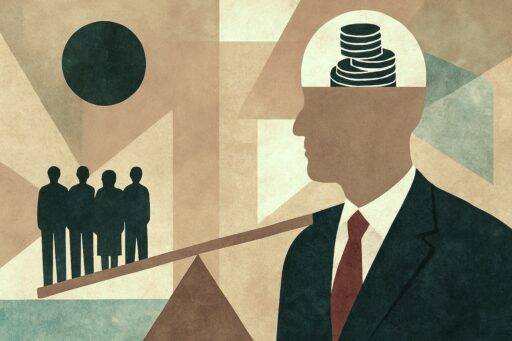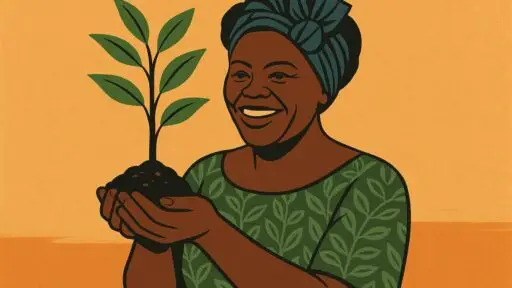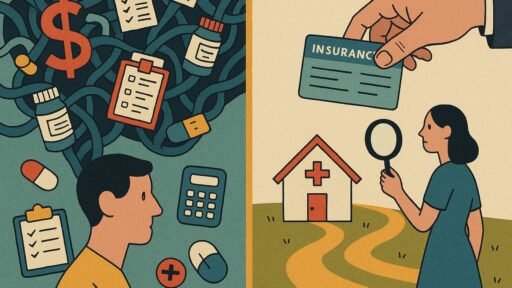We live in an age of staggering contrast. A handful of people command fortunes so vast they can fund private space programs and gobble up media empires, while billions struggle just to feed their families. The world has never produced this much wealth or this much inequality.
It’s not a question of whether the richest among us could end extreme poverty. Of course, they could, so the real question is why they haven’t.
The Power Billionaires Hold
Billionaires today are not merely wealthy individuals; they are private institutions. Their influence extends beyond markets into the realms of education, healthcare, technology, and even democracy itself. They design the tools that define modern life, from the apps we scroll to the satellites we depend on.
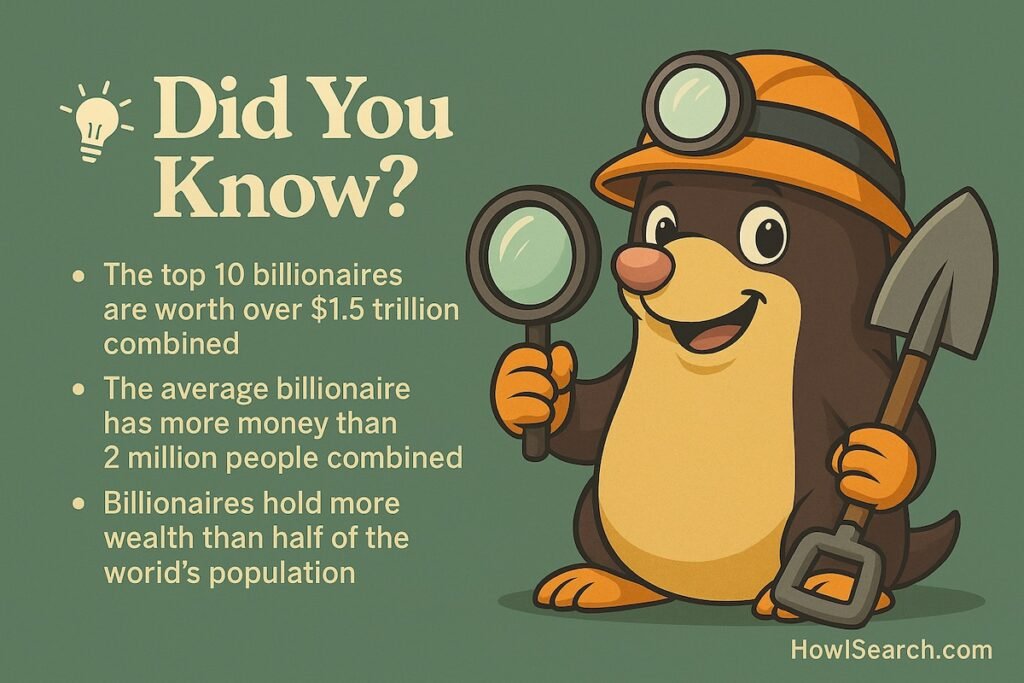
However, depending on how they use it, that power cuts both ways and can accelerate progress or deepen inequity.
Supporters of billionaire philanthropy point to initiatives like the Giving Pledge, where ultra-wealthy figures such as Warren Buffett and Bill and Melinda Gates commit to giving away most of their fortunes. On paper, it’s inspiring. In practice, it often feels like public relations dressed as altruism.
It appears to be generosity, but it’s actually a form of control. Private foundations decide which problems matter, who gets help, and who remains invisible. That’s not democracy. It’s a benevolent dictatorship, and the benevolence depends entirely on the donor’s mood.
When Generosity Reinforces Power
The rise of “philanthrocapitalism” has blurred the line between public good and private interest. A billionaire might fund an entire city’s school district, but should one person have that much sway over education policy?
These acts of giving can easily morph into mechanisms for influence. Tax incentives, reputation management, and even the quiet rewriting of history are built into the modern machinery of philanthropy.
Some critics argue that while philanthropy may lessen many symptoms, it rarely addresses the root causes of inequality. By funding select initiatives while avoiding systemic reform, the ultra-rich often maintain the very systems that made them indispensable in the first place.
A Different Kind of Philanthropy
Despite these contradictions, there is still a path forward—one that requires billionaires to stop thinking like saviors and start acting like partners.
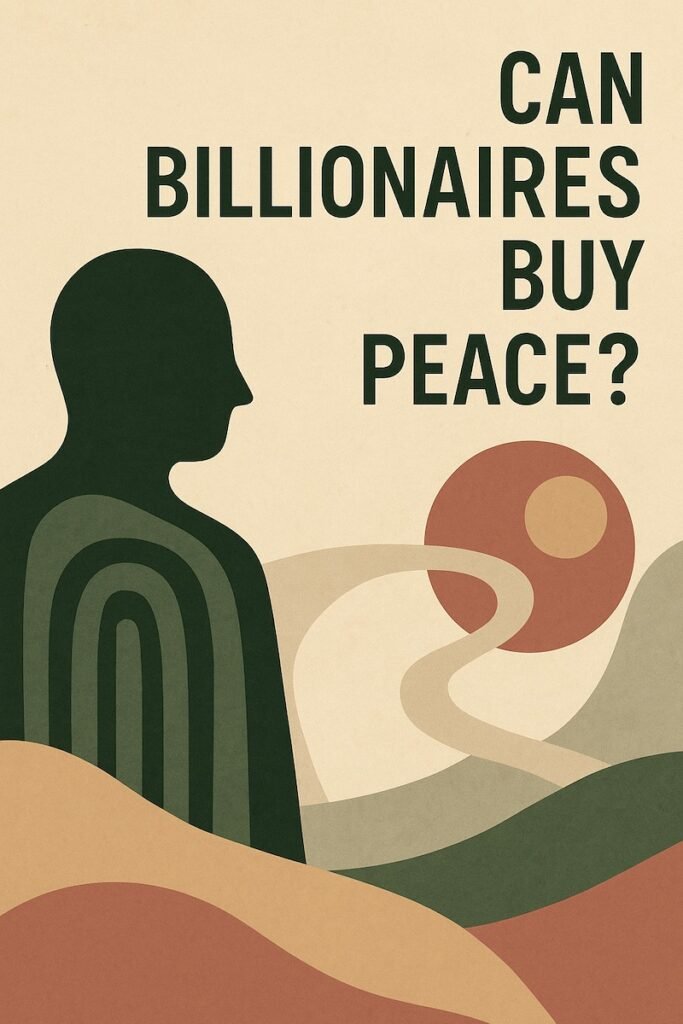
1. Invest in What Works
Programs like GiveDirectly, which provide unconditional cash transfers to families in poverty, consistently show higher impact than traditional aid models. The model works because they trust people to make their own decisions without unrealistic expectations. Billionaires could expand these models exponentially by funding models based on trust instead of bureaucracy.
2. Build Systems, Not Monuments
While large-scale infrastructure, such as clean water, broadband access, and education, often goes unnoticed, the impact on communities is profound. Headline projects or shiny new labs don’t inspire lasting change; instead, transformation comes from the unglamorous, frequently invisible work of building systems that last. Strengthening supply chains, funding teacher training, modernizing hospitals, or expanding broadband access are the foundations of stability that rarely trend online. But they save lives and engender peace more effectively than one-time donations.
3. Listen to Local Leaders
Communities on the ground know their own challenges better than anyone in a boardroom ever will. Empowering grassroots organizations and investing in local expertise creates genuine resilience. It also challenges the “we know best” mindset that plagues most philanthropic efforts.
4. Eliminate the Self-Dealing
Many charitable foundations function as financial shelters. Real impact demands transparency, not more endowments designed to protect wealth while pretending to share it. Accountability should be the standard, not an afterthought.
5. Learn from the Mackenzie Scott Blueprint for Change
If there’s a billionaire who has rewritten the rules of modern philanthropy, it’s Mackenzie Scott.
Her fast, quiet, and radically trusting giving style is a study in humility. Since 2020, she has donated over $16 billion to nearly 2,000 organizations, many of which are small, community-led, and historically underrepresented.
What makes Scott’s approach revolutionary isn’t just the amount of money, but the way she gives it. No application portals. No public competition for funds. No strings attached. She and her small team conduct their own research, identify groups already doing meaningful work, and then send the money.
Scott’s model is philanthropy without ego, what some call “trust-based giving,” but it’s really just common sense that entails believing in the people closest to the problem. Her donations have strengthened everything from Indigenous rights groups to community colleges, food justice networks, and women-led nonprofits.
There are no grand ceremonies or branded foundations bearing a Mackenzie Scott brand, and there are no glossy photo shoots, only quiet transformations.
Scott’s method exposes a truth the rest of billionaire philanthropy often avoids: when you remove control and competition from charity, generosity becomes justice.
Imagine if even a handful of her peers followed that lead not to make headlines, but to redistribute power equitably.
From Aid to Peacebuilding
If billionaires truly wanted to change the world, they would think beyond crisis relief and start funding peace. Groups like the Humanitarian Relief Foundation in Turkey are already experimenting with models that combine short-term aid with long-term reconciliation by treating trust itself as a form of infrastructure.
Research consistently shows that poverty and instability are deeply linked. A well-fed community is a peaceful one; an educated community is a resilient one. Philanthropy that ignores this intersection—addressing hunger, conflict, and inequality as separate problems—will always fall short.
Breaking the Billionaire Silo
It’s easy to see greed, rather than fragmentation, as the biggest issue with elite philanthropy. Education here, environment there, healthcare somewhere else. But people don’t live in categories. Poverty is systemic, so the response must be, too.
Imagine a model where governments, corporations, and local organizations collaborate in a coordinated manner, rather than competing against each other. Public-private partnerships that share both risk and reward with funding networks where billionaires contribute resources, but not the agenda.
Wealth can support democracy, but it shouldn’t replace it.
Measuring What Matters
Too often, philanthropic success is measured solely in terms of money: dollars donated, foundations established, and new initiative announcements. Less noticeable are the real metrics such as graduation rates, access to clean water, maternal health, and lower rates of violence.
Frameworks like social impact investing and logical results analysis prioritize outcomes over optics. They shift the focus from how much billionaires give to what actually changes.
And that’s where peace begins: in the data that billionaires and their foundations can’t pin into a glowing press release.
Legacy or Leverage?
The UBS Billionaire Ambitions Report offers a glimmer of hope. It found that many of the world’s wealthiest individuals are beginning to direct their capital toward climate resilience, food equity, and clean energy. The mindset is shifting, but not fast enough.
Legacy is easy. Leverage is harder. The first builds a statue; the second changes a system.
The Real Test of Wealth
Extreme wealth isn’t inherently evil. But like pressure building in the atmosphere, it is unstable. It distorts economies, warps democracies, and erodes empathy, unless redirected toward shared stability.
Used with humility and foresight, that same wealth could repair the very fractures it helped create. It could fund peace, not just patch suffering.
The truth is simple: money alone won’t save us. But who it consults and what it funds, just might.
Billionaires need to stop pretending that what they’re doing is saving the world and start funding projects that recognize peace as a worthwhile cause.
Top 20 Richest Billionaires in the World (2025)
Source: Bloomberg, Forbes, UBS Billionaire Report, and regional wealth indexes (updated November 2025)
Rank | Name | Net Worth | Country | Company / Source | Philanthropy / Focus |
1 | Elon Musk | $241B | Tesla, SpaceX | Clean energy, AI, space tech | |
2 | Bernard Arnault & family | $199B | LVMH | Arts, culture, sustainability | |
3 | Jeff Bezos | $192B | Amazon | Climate pledge, space exploration | |
4 | Mark Zuckerberg | $172B | Meta (Facebook) | Connectivity, education | |
5 | Larry Ellison | $162B | Oracle | Medical research, ocean conservation | |
6 | Warren Buffett | $145B | Berkshire Hathaway | Philanthropy, global health | |
7 | Bill Gates | $137B | Microsoft | Global health, poverty reduction | |
8 | Steve Ballmer | $129B | Microsoft, LA Clippers | Education, civic engagement | |
9 | Larry Page | $127B | Google (Alphabet) | Renewable energy, tech education | |
10 | Sergey Brin | $123B | Google (Alphabet) | Health, science innovation | |
11 | Mukesh Ambani | $110B | Reliance Industries | Rural development, education | |
12 | Françoise Bettencourt Meyers & family | $96B | L’Oréal | Arts, science philanthropy | |
13 | Carlos Slim Helú & family | $95B | Telecom | Education, health, infrastructure | |
14 | Amancio Ortega | $90B | Zara (Inditex) | Urban renewal, health research | |
15 | Michael Bloomberg | $89B | Bloomberg LP | Climate, public health, arts | |
16 | Zhong Shanshan | $87B | Nongfu Spring | Health, clean water | |
17 | Jim Walton | $85B | Walmart | Education, community development | |
18 | Alice Walton | $82B | Walmart | Arts, education | |
19 | Rob Walton | $81B | Walmart | Environmental protection | |
20 | Gautam Adani | $78B | Adani Group | Renewable energy, infrastructure |
Further Context
- Combined, these 20 individuals control over $3.5 trillion, more than the GDP of India.
- 13 of 20 reside in the U.S., underscoring how concentrated global wealth has become.
- Mackenzie Scott stands out as a case study in “quiet, power-sharing philanthropy.”
- The top 5 alone could, by most UN and World Bank models, eradicate extreme poverty multiple times over—without losing billionaire status.
Selected References
- The True Cost of Billionaire Philanthropy – IPS
- How the Billionaire Boom Is Fueling Inequality – Social Europe
- Warren Buffett’s philanthropy – Picture Perfect Portfolios
- Ending Poverty for Half the World – World Bank
- GiveDirectly’s Direct Cash Transfer Model
- Peacebuilding in Humanitarian Aid – Beyond Intractability
- Global Citizen Anti-Poverty Activists
- OECD Effective Results Frameworks
- UBS Billionaire Report


